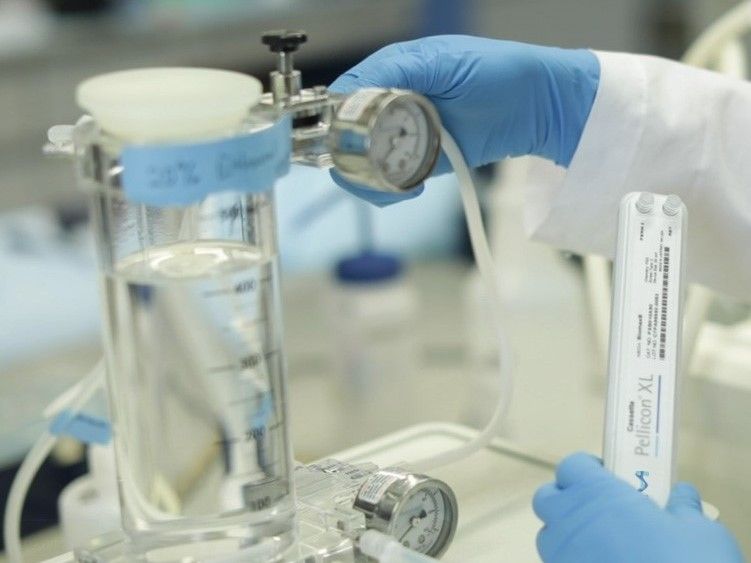Merck and Baylor College of Medicine Collaborate to Advance a Vaccine Manufacturing Platform to Fight Covid-19
Company will focus on process development and improvements for manufacturing Baylor’s Covid-19 vaccine candidates
Advertisement
Merck and Baylor College of Medicine, Houston, Texas, USA, announced an extension of their ongoing collaboration to advance a manufacturing platform to fight Covid-19, designed to accelerate transition to Phase 1 clinical trials.

Merck and Baylor College of Medicine, Houston, Texas, USA, announced an extension of their ongoing collaboration to advance a manufacturing platform to fight Covid-19.
Merck KGaA
“Vaccine manufacturing is extremely complicated, so we are collaborating on a process development approach to accelerate manufacturing of Baylor’s Covid-19 vaccine candidates,” said Udit Batra, member of the Merck Executive Board and CEO, Life Science. “To fight this pandemic, we will need to produce an unprecedented amount of vaccine in a very short period of time, and we need as many approaches as possible to be successful.”
There are no standard manufacturing templates or processes due to the complexity and diversity of vaccine modalities, which makes production a challenge for every organization racing to develop a safe and effective Covid-19 vaccine. Using key learnings from their ongoing collaboration on a schistosomiasis vaccine, Merck, along with researchers at Baylor College of Medicine and the Texas Children’s Hospital Center for Vaccine Development, is optimizing the production processes to advance two Covid-19 vaccine candidates, including the CoV RBD219-N1 vaccine candidate expected to enter clinical trials later this year. Merck will help to accelerate their suitability for large-scale manufacturing. This collaboration will focus on improvements to production efficiency, yield, robustness, scalability and costs.
“Our initial collaboration with Merck built an important and critical framework for us to quickly validate and ready the production of our portfolio of neglected tropical disease vaccines for global access,” said Dr. Peter Hotez, dean of the National School of Tropical Medicine at Baylor College of Medicine and co-director of the Texas Children’s Hospital Center for Vaccine Development, alongside Dr. Maria Elena Bottazzi.
“The expansion of our collaboration to include diseases of pandemic importance will now allow us to accelerate the development of a scalable and affordable manufacturing process of our Covid-19 vaccine candidates and enable them to advance as quickly as possible to support vaccine production in low- and middle- income countries,” said Bottazzi, who leads the product development activities and serves as associate dean of the National School of Tropical Medicine at Baylor.
The Merck-Baylor teams will improve the manufacturing platform for the CoV RBD219-N1 vaccine candidate, which was originally developed to target SARS in 2011-2016. Additionally, they will develop a new manufacturing platform for a second Covid-19 vaccine candidate to shorten the time to enter into Phase 1 clinical trials. The goal for the partnership is to develop a manufacturing process and steps that would lead to a scale-up approach suitable for pilot and later industrial production.
Researchers from the Texas Children’s Center for Vaccine Development first formed a partnership with Merck’s process development scientists and biomanufacturing engineers in 2018 to advance vaccine development and production and enhance the response to outbreaks, such as Covid-19. Because the initial groundwork is laid through their existing process development platform work, the team can quickly shorten the time to the clinic, realizing a key goal.

















































